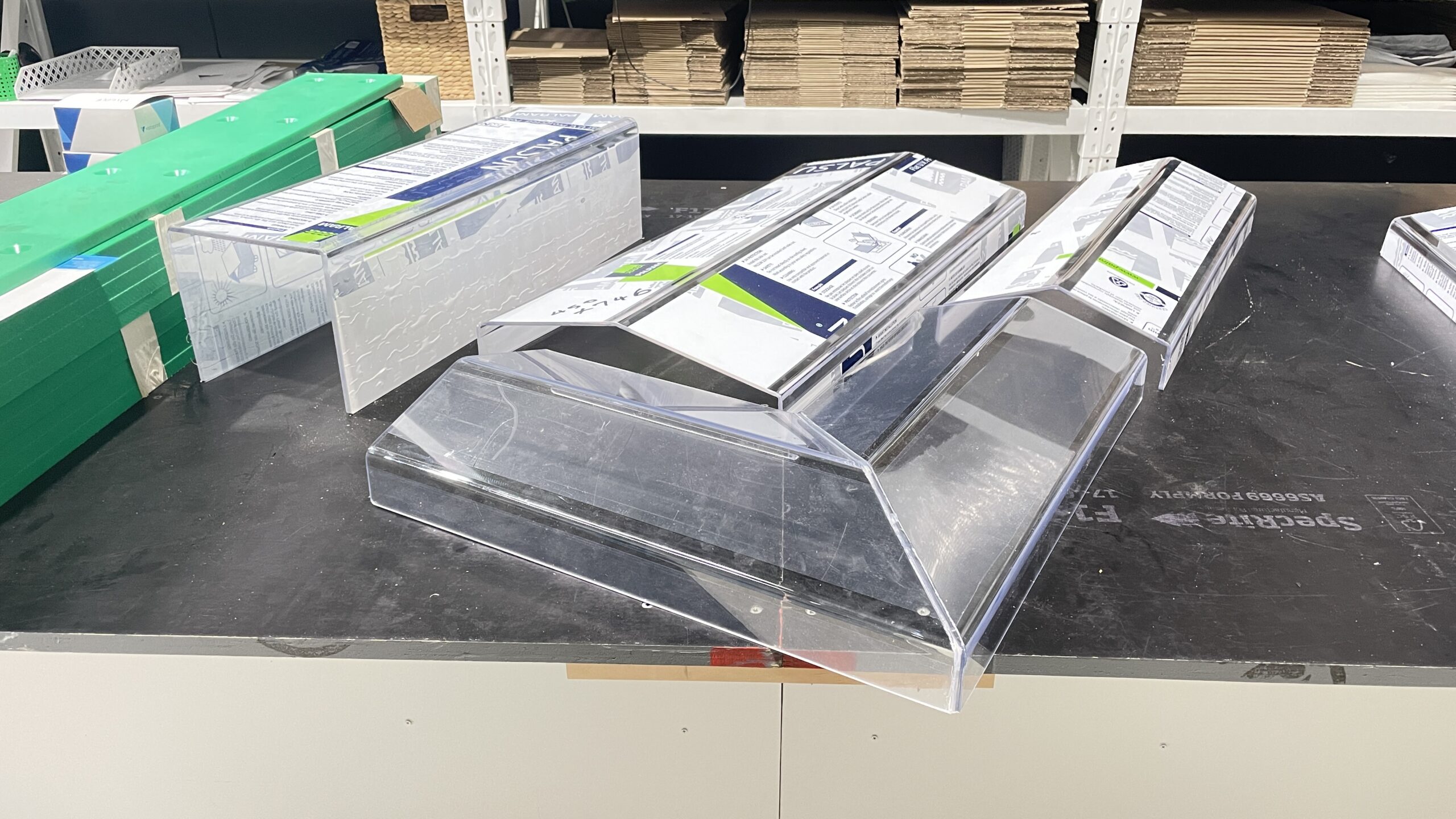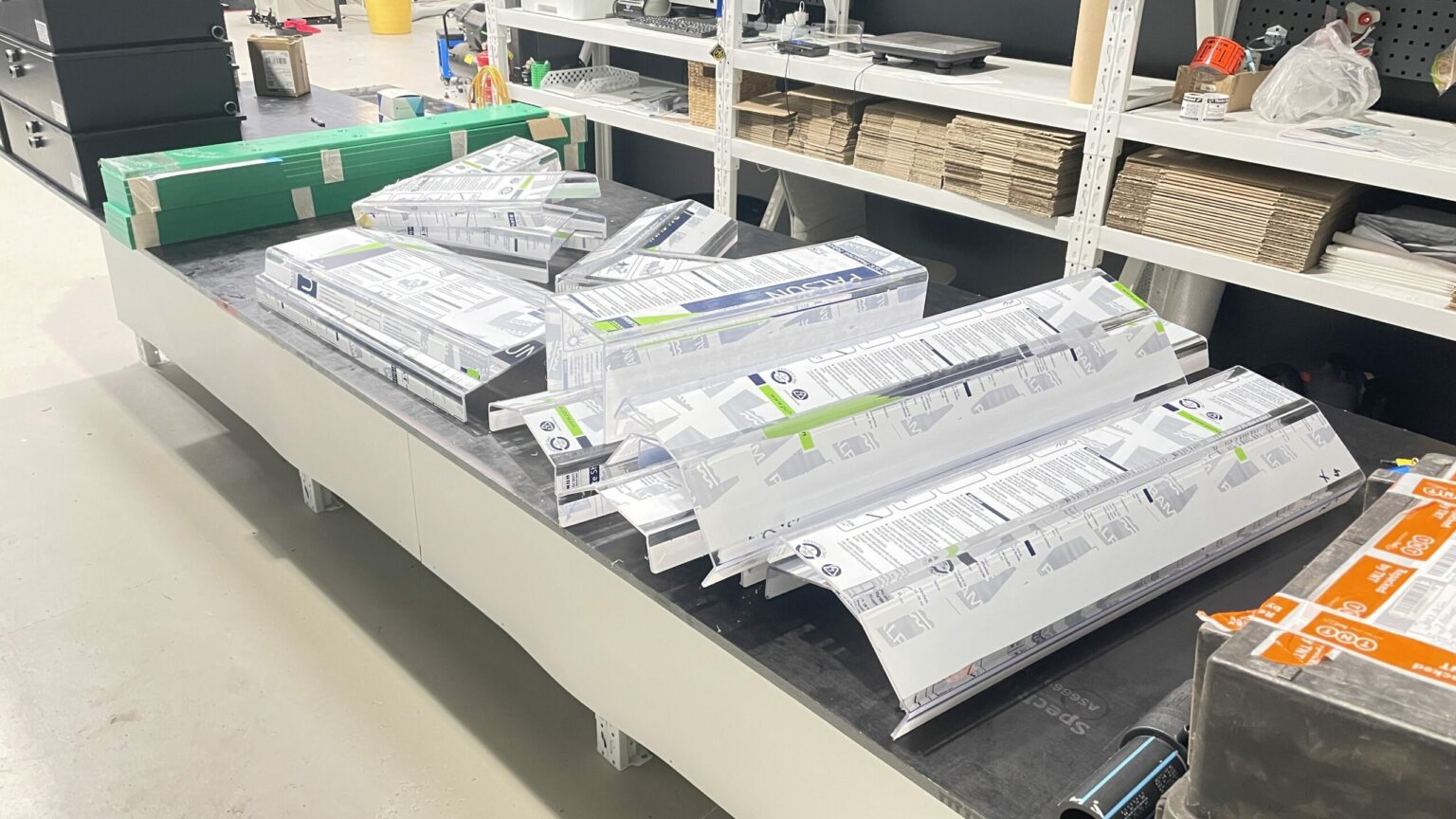TDS: Polycarbonate (PC)
Make informed choices using our technical data insights.
TECHNICAL DATA SHEET: KEY CHARACTERISTICS AND APPLICATIONS
Polycarbonate (PC)
General Information:
Product Name: Polycarbonate (PC)
Classification: Amorphous thermoplastic
Typical Properties:
- Density: 1.20 – 1.22 g/cm³
- Tensile Strength: 55 – 70 MPa
- Elongation at Break: 50 – 120%
- Tensile Modulus: 2,200 – 2,400 MPa
- Vicat Softening Point: 145 – 150°C
- Notched Izod Impact Strength: 600 – 850 J/m (exceptionally high impact strength)
- Refractive Index: ~1.586
- Light Transmission: 88 – 90% (clear grades)
- Coefficient of Linear Thermal Expansion: 65 – 120 x 10^(-6) K^(-1)
- Dielectric Constant: 2.9 (at 1 MHz)


Features and Benefits:
- High Impact Strength: PC is known for its virtually unbreakable nature.
- Optical Clarity: Offers transparency almost equivalent to glass.
- High Temperature Resistance: Stable in broad temperature range.
- UV Stability: Can be enhanced with coatings or additives, as raw PC is sensitive to UV radiation.
- Flame Retardancy: Inherent flame resistance which can be enhanced with additives.
- Dimensional Stability: Maintains shape and size under stress and heat.
Applications:
- Optics: Eyewear lenses, optical discs, and light covers.
- Building & Construction: Glazing, roofing, and security windows.
- Automotive: Headlamp lenses, bumpers, and sunroofs.
- Electronics: CDs, DVDs, Blu-ray discs.
- Medical: Medical devices, housings, and drug delivery.
- General Purpose: Safety helmets, face shields, and riot shields.
Processing Methods:
- Extrusion (sheets, films, and profiles)
- Injection Molding (components, housings, and high precision parts)
- Blow Molding (containers and bottles)
Environmental Impact and Recycling:
- PC can be recycled, although it’s essential to separate it from other plastics to maintain its unique properties.
- When incinerated, PC releases CO₂ and water. However, due to the presence of the carbonate group, it can also release trace amounts of CO.
- PC recycling is increasing with advances in technology and demand for sustainable materials.
Storage and Handling:
- Store in a cool, dry place away from direct sunlight to avoid potential UV degradation.
- Handle with care to avoid scratching, as while PC is impact resistant, it can be prone to scratching.
Safety Information:
- PC is safe for various consumer and industrial applications.
- When processing PC, proper ventilation is essential due to the potential release of bisphenol A (BPA) and other by-products. PC is flammable and should be kept away from open flames; when burned, it can release toxic fumes.
Note: This technical data sheet provides general information and typical values for PC. Actual specifications might differ based on the manufacturer and specific product grade. Always refer to manufacturer-specific data sheets for detailed information on a particular product.
Disclaimer: The information provided is “as is” without any warranties. Users are advised to conduct their own verification and testing for specific applications.


















